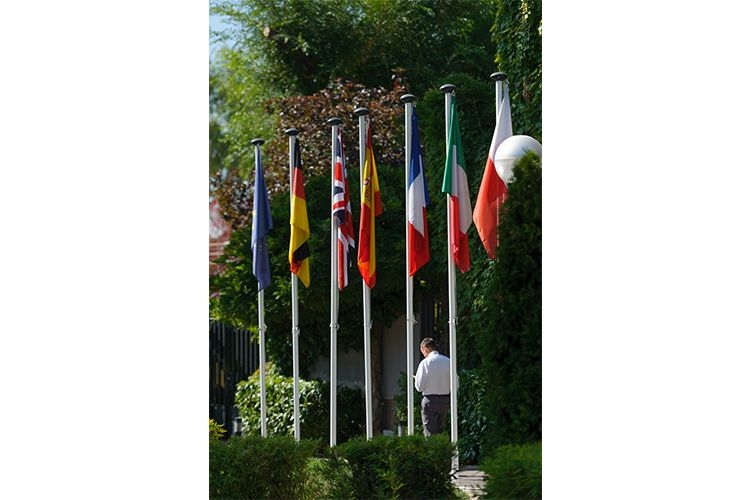Prof. Andreas Kaplan, Rector of the ESCP in Berlin, has put forward five theses on the idea of European universities: What we could achieve via these universities and for what they could stand for.
1. A European university … creates a European identity.
Leading politicians such as Emmanuel Macron, Jean-Claude Juncker and now Ursula von der Leyen view education and culture as the key to establishing a European identity. Until now, there have mainly been national courses with degrees which are geared merely to the country in question. There is no pan-European degree. However, it is precisely this which is required, in order to create a pan-European tertiary system that results in a collectively recognised identity. The prerequisite for this would be a European entity, which sets the content and requirements of such a course and bestows the grade.
2. A European university … is attractive and needs a reputation.
The concept does not need to be thoroughly overhauled to attain the idea of a European university. If the European university is destined to train fully fledged Europeans in the same way as international students, it has to be, first and foremost, attractive. This attractiveness can already be said of reputable universities like the Paris Sorbonne, the Charles University in Prague or the Humboldt University in Berlin. These tertiary establishments could assume the role as the respective leader in a planned network of a further four to six universities in at least three European countries. They determine the curriculum and can otherwise use the resources of the other members in the network.
3. The European university … promotes cultural and social diversity.
Thanks to the Erasmus+ student exchange programme, there is already a high degree of mobility among students throughout Europe. Nevertheless, time spent abroad is often too short for students to be able to actual take in the culture and the language of the country in which they are staying. And they often prefer to explore the region rather than to learn new content. That is where the European university goes one step further. Students spend each year of their study in a different country, yet the contents of the course are based on each another, meaning that a European degree is attained at the end of the degree course. Only those who are immersed in the culture and language of a foreign country for a longer period develop a true understanding for it, and are then in a position to proclaim diversity in a company or with the authorities. There needs to be the appropriate financial help to enable students to access this type of study course.
4. A European university … teaches students to become multilingual.
The idea of a European university is closely associated with the ability of its students to overcome the language barriers within the EU. The prerequisite of a study course being successful across European borders is undoubtedly teaching in a common academic language, English, of course. However, for this to work, the level of English taught in the schools of many European countries needs to be improved substantially. By spending a year in different countries and undergoing intensive language courses, students will at least become trilingual. This knowledge will then ultimately help them to feel at home in cultures within and outside of the European Union.
5. European universities … imparts European knowledge.
Europe benefits as a result of the cultural, social and language diversity of its Member States. A degree course at a European university will impart the essence of what unites Europe at its core. This includes basic knowledge of European institutions and the way in which they function. Differences, too, among the respective subject areas across European countries and in comparison to other regions in the world should also form part of the course. Imparting knowledge is, of course, easier to carry out with subjects such as philosophy and economics compared to mathematics. This is undoubtedly helpful in understanding the foundation on which Europe is built. To be aware of this European essence would not only be meaningful for students at a European university.
Background information
France’s president, Emmanuel Macron, promoted the idea of establishing 20 European universities by 2024 in his much cited speech held at the Paris Sorbonne in September 2017. He hopes that by promoting a European education elite, he will gain impetus for his idea of a united Europe. Students at these universities would spend each year of their course in a different country.
On 27th of June the European Commission has announced the first 17 projects that will receive funding for a three-year pilot under the prestigious European Universities Initiative funded by the Erasmus+ programme.
Out of 54 applications received, 17 European Universities’ alliances involving 114 higher education institutions from 24 European Union member states were selected based on an evaluation carried out by 26 independent external experts, including rectors, professors and researchers, appointed by the commission.
And still, there are a number of hurdles to face before such an ambitious project gets off the ground. There are, however, already European university networks, on whose experiences further development could be based, like the 4EU Alliance, the EuroTech Alliance, The Franco-German university and, last but not least, ESCP with its multi-campus model which has been around since 1973.
Campuses
